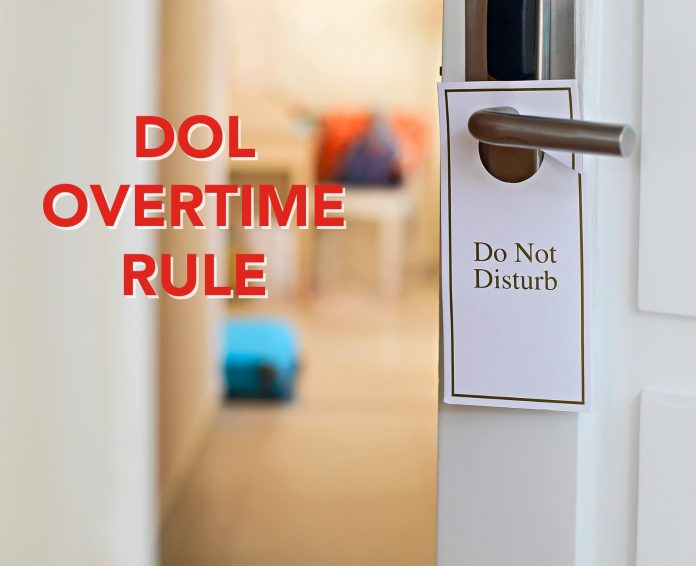
THE AMERICAN HOTEL & Lodging Association is weighing all options, including litigation, to contest the U.S. Department of Labor’s final rule revising overtime regulations under the Fair Labor Standards Act. The association is concerned that many hoteliers may be forced to eliminate longstanding managerial positions, which serve as crucial paths to career advancement.
The updated rule features two-tiered increases in the minimum salary threshold and the threshold for highly compensated employees, along with automatic updates to both thresholds, DOL said in a statement. The minimum salary threshold will rise to $43,888 on July 1, followed by an increase to $58,656 on Jan. 1, 2025.
This represent more than a 60 percent increase from the current $35,568 threshold, DOL said. The HCE threshold will jump to $132,964 on July 1, then to $151,164 on Jan. 1, 2025—an over 70 percent increase from the current $107,432 threshold, DOL added. The updated rule includes automatic updates to both the minimum salary threshold and the HCE threshold, which will be raised every three years.
“This rule is part of a growing list of aggressive federal regulatory efforts that are making it even harder for hoteliers to operate their businesses in this challenging environment,” said Kevin Carey, AHLA’s interim president and CEO. “The impacts of this regulation will risk the elimination of jobs and make it more difficult for employees to pursue the existing pathways to success and career growth that the industry offers. We fear many hoteliers will have no option other than to eliminate managerial jobs that are long-established paths to advancement. AHLA is reviewing all available options, including litigation, for defeating this ill-advised regulation.”
However, the DOL said that the new rule aims to fulfill the promise to workers that if they work over 40 hours in a week, they deserve additional compensation for that time.
“Too often, lower-paid salaried workers are doing the same job as their hourly counterparts but are spending more time away from their families for no additional pay,” said Julie Su, DOL’s acting secretary. “That is unacceptable. The Biden-Harris administration is following through on our promise to raise the bar for workers who help lay the foundation for our economic prosperity.”
‘Challenging the status quo for hoteliers’
AHLA said that the DOL’s overtime rule would raise the salary threshold for exempt executive, administrative, and professional employees under the FLSA, tightening requirements for overtime pay exemption.
The rule is part of a wave of recent federal efforts making it harder for hoteliers to do business that also includes regulations to determine joint-employment and workers’ independent-contractor status, the association said.
The initial raise of the salary threshold from $35,568 to $43,888 on July 1, 2024, follows the department’s current methodology, AHLA said. The subsequent increase to $58,656 on January 1, 2025, adopts a new approach, setting the threshold at the 35th percentile of weekly earnings for full-time salaried workers in the lowest-wage Census region.
The rule follows the DOL’s increase of the minimum salary threshold by over 50 percent to $35,568 just four years ago, AHLA added.
AHLA is spearheading coalition efforts with the Partnership to Protect Workplace Opportunity, opposing the DOL rule. In March, AHLA coordinated an industry letter to Congress backing legislation aimed at overturning the rule.
In January, AHLA said that the new rule for distinguishing between independent contractors and regular employees complicates the process, reduces opportunities for workers, and affects hotels’ ability to recruit staff.





